Polyurethane prostheses
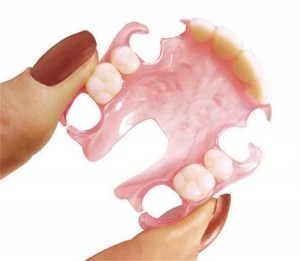
Polyurethane dentures are removable constructions that are analogues of dentures made of nylon.
They are made of flexible plastic. Polyurethane prostheses are considered popular dental designs, because they have all the advantages of nylon dentures, but unlike them, they have a lower cost.
At the same time, polyurethane structures even surpass nylon prostheses in terms of elasticity and flexibility.
Polyurethane does not cause allergies, it is sufficiently resistant to high loads and temperature extremes, which significantly prolongs its operation time.
Polyurethane constructions can be used by patients with both partial and complete loss of teeth.
Dentures are suitable for patients who have weak gums or are allergic to metals or acrylic plastic.
Unlike other materials, polyurethane does not absorb moisture, which does not allow bacteria to accumulate on the surface of the structure, which can cause the appearance of halitosis or other inflammatory processes in the oral cavity.
There are practically no contraindications to installing prostheses made of polyurethane, with the exception of one thing: they are not installed when a large number or all of the teeth are lost.
Benefits
- Design biocompatibility (do not cause allergies).
- Relatively low price, in comparison with other flexible prostheses, for example, nylon.
- Long service life.
- High wear resistance.
- Great aesthetics.
- Good denture flexibility, resilience.
- Polyurethane constructions are stronger than their analogues.
- The prosthesis attachments consist of the same material as the structure.
- They do not absorb moisture, which eliminates the possibility of bacterial contamination and the occurrence of halitosis.
- Excellent withstand heavy loads.
- Comfortable and convenient to use.
disadvantages
Like all removable structures, polyurethane prostheses have advantages and disadvantages.
Design disadvantages:
- It takes a certain amount of time to get used to them.
- The prosthesis has relative stiffness.
- The inability to use the design to restore a large number of teeth.
Manufacture
The manufacture of a prosthesis from polyurethane and its installation takes place in several stages:
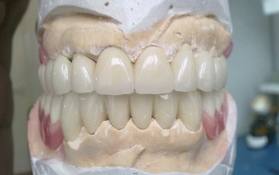
- Reconstruction of the oral cavity. Examination and elimination of all problems: treatment of caries, inflammatory gum disease, removal of bacterial plaques.
- Color matching artificial teeth.
- Impression of the upper and lower jaws.
- Manufacturing designs in the dental laboratory.
- Trying on the finished design and correction.
- Prosthesis fixation.
Methods for fixing prostheses made of polyurethane
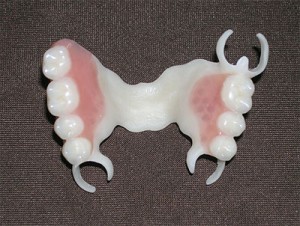
Due to the fact that the polyurethane prosthesis is removable, there are three ways to fix the structure in the patient's mouth:
- With the help of clasps, a denser fixation of the prosthesis in the mouth is possible. Clammers do not do any harm to the teeth on which they are fixed, because they are not metal.
- On locks (attachments). The design is attached to the abutment teeth.
- Using telescopic crowns. One part of the prosthesis is attached to the prosthesis, the second to the tooth.
Care
For a design to last longer, it must be properly looked after.
- Care consists in daily cleaning of the prosthesis with a toothbrush and a special tool. In its absence, the structure can be washed with soap.
- The use of abrasive pastes is strictly prohibited.
- After each meal and at bedtime, it is recommended to rinse the prosthesis from polyurethane and the oral cavity with water.
- Periodically, the design must be placed in a special cleaning solution. You can take the prosthesis for professional cleansing to a special denture laboratory.
Life time
A significant impact on the service life of the prosthesis made of polyurethane has the right care for the design.
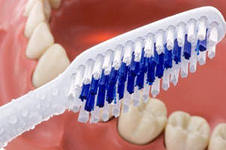
- Care of the prosthesis includes daily cleaning with the help of special tools recommended for the care of nylon dentures.
- The use of abrasive pastes should be avoided, since they can easily damage the surface of the structure.
- After each meal and at bedtime, the oral cavity and prosthesis must be thoroughly rinsed with running water.
- Most removable dentures have a lifespan of at least five years.
- Many experts say that it is better to replace the structure every 3 years, because the processes of bone resorption that begin after tooth extraction continue under the denture.
Video: “Dentalur - assessment and physical characteristics”
Questions and answers
Most patients seek help when a large number of teeth are lost.
Many are interested in: is it possible to do without removable prosthetics? Yes, of course, there are many ways to rectify the situation. But often you don’t want to go for implantation or to grind, often even healthy teeth.
And then one of the most modern methods of tooth restoration comes to the rescue - polyurethane removable dentures.
To find out if this type of prosthetics is suitable for the patient, doctors give answers to frequently asked questions:
- Question: What is the polyurethane that dentures are made of?
Answer: This is a material with unique properties, from which the basis of a removable prosthesis and elastic clasps are made.
- Question: What are the advantages of prostheses made of polyurethane?
Answer: They are durable, comfortable, lightweight, harmless. Designs are able to perfectly fix in the patient's oral cavity, which allows him to feel a state of comfort. And what is important, microbes do not breed on them.
- Question: How long can such prostheses be used?
Answer: If you use the design correctly and regularly undergo a professional examination at the dentist, then the service life of the structure is quite long.
- Question: In what cases are polyurethane structures recommended?
Answer: polyurethane prostheses are recommended in any clinical situation. They allow you to restore both individual teeth and a complete dentition, as well as a complete absence of teeth. Especially recommended for those patients who do not want to grind their teeth.
- Question: How much does it cost to install a removable polyurethane structure?
Answer: The cost of installing prostheses depends on the condition of the oral cavity and ranges from 10,500 to 20,000 rubles.
Prices
Removable dentures made of polyurethane, the price of which depends on the manufacturer of the material used in the manufacture of the structure and the complexity category of its manufacture, ranges from 20,000 to 38,000 rubles.
The value is also influenced by the popularity of the brand and many other components.
Polyurethane prostheses: minimum prices
| Type of prosthesis | Price in rubles |
| One-jaw polyurethane prosthesis | 20000 |
| Nylon prosthesis on the upper or lower jaw | 35000 |
| Quadrotte tooth design on one jaw | 33000 |
| Acryphry tooth design on one jaw | 24000 |
Reviews
Polyurethane dentures due to their low cost are popular with people on a budget.
Here are some reviews that may be of interest to those patients who have not yet decided on the choice of design:
- I use polyurethane prostheses and believe that if they were reduced to a budget level, then prostheses would become very popular and would fill the entire dental prosthetics market. They would not have competitors.
- I do not like polyurethane. Nylon is much better. Polyurethane is a brittle and low-quality material. In the mouth there is a constant smack of chemistry.
- Delivered dentures made of polyurethane. But, it seems to me, poor quality. Not enough height. The teeth are always open. The face has changed, the lower jaw has failed. I am terrified. I will redo it.
- I put a polyurethane prosthesis, the design is very light and comfortable. Quickly got used to it. Before that, he made from nylon, and several times. None of them left positive emotions. Compared to nylon, a polyurethane prosthesis is better.
Before and after photos
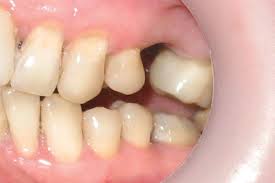 |
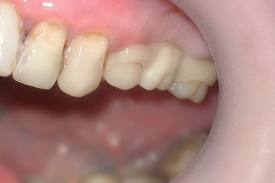 |
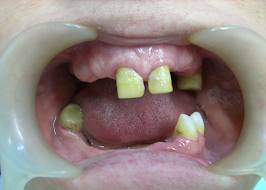 |
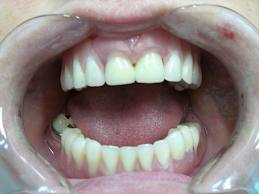 |
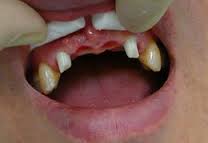 |
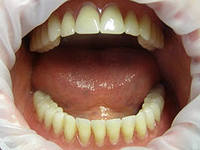 |
